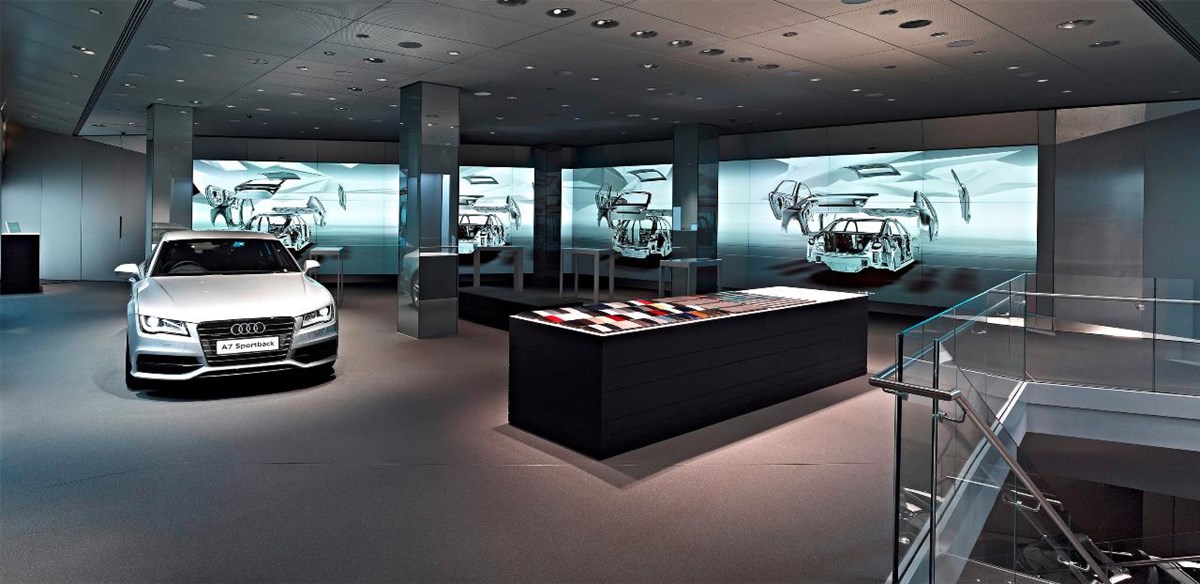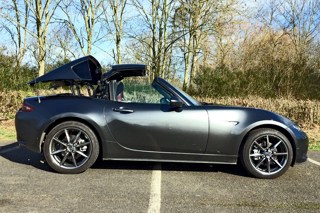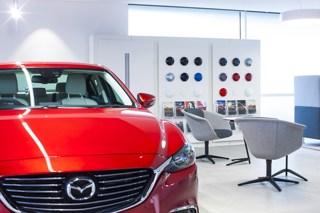Have vehicle manufacturers lost the plot with the property demands imposed on their franchisees? Now that recession is firmly behind us in the UK, and franchised networks have enjoyed a couple of years of solid profits, every second carmaker brand seems to have decided it is time for a comprehensive showroom refresh or relocation in order to adequately display their latest models.
At the same time as setting the dealer a deadline for incorporating the latest corporate identity changes or risk its standards’ margin, the manufacturer may generously offer a funding line for it through its captive finance operation, with interest payable, of course.
And to best comply with the new showroom standards for the brand’s look and feel it will be crucial to acquire the front-of-house fittings, tiles and furnishings from the manufacturer’s chosen supplier.
As Ford stated during the recent Paris Motor Show, where it revealed the look of its new premium Vignale customer lounge concept, it spent a lot of time and effort finding the right quality of bespoke furniture and touchscreen table. AM’s first impression? It’s more mandatory brand investment for the dealers involved, yet the end result appears underwhelming for anyone who has spent a few hours in an airport business lounge.
Is this the real challenge for motor retail property? Consumers cannot get on a plane without going to an airport, so the business lounge has a captive market, yet they can purchase their next car without going to a showroom.
Adding theatre to the showroom
Carmakers are responding to this challenge in the short term by demanding more “theatre” in the showroom.
Wayne Jones, managing director of automotive architects practice Jones AD, said: “The showroom is becoming more of a retail experience than just a destination.
“I think many wouldn’t just buy a car online, however good the car configurators are. You want to experience the car, experience the test drive, probably not so much the interaction with the sales staff. So I think there’s a fight-back within the market to entice you there and to make it a more homely, less sterile environment.”
Having piloted large, touchscreen car configurators in its Piccadilly retail store, Audi is now rolling these out to 20 of the UK network’s largest sites, and Volkswagen is making technology a central part of its new car buying process. However, the demands for bigger and better showrooms suggest there is still plenty of appetite among manufacturers for dealers to invest in property.





















Ian Webber - 19/11/2014 14:33
The term “Digital Dealership” is becoming widespread, although the concept may not be. But what is a digital dealership? My view is that it’s a retail space in urban or high traffic shopping areas that can engage and inspire potential customers early on in their purchase journey. These types of car brand retail spaces are not commonplace, but are starting to gain traction, as your article suggests. Since Audi launched its hugely successful Audi City store in July 2012 and Tesla opened its first retail store in the UK at London’s Westfield Shopping Centre in White City, there has been little else on the horizon in this space. Nissan Innovation Station in the London O2 is another example of brands engaging with and inspiring potential buyers in a high footfall area. It seems to now be the case that other brands are starting to move into digital dealerships, with the announcement that Hyundai is to open a digital store at the Bluewater Shopping Centre in Kent. Bluewater has a footfall of 27 million people each year, so it makes perfect sense. Ultimately, car brands need to be where people are to engage with and inspire car buyers.